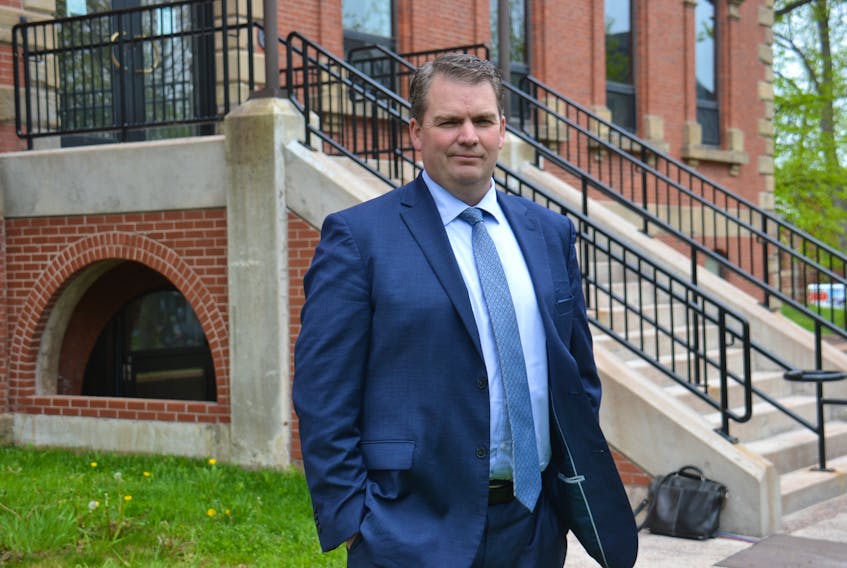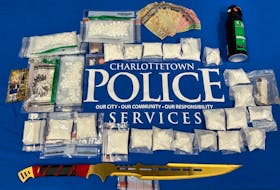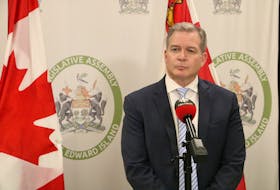CHARLOTTETOWN, P.E.I. — In the midst of an investigation by P.E.I.’s Office of the Coroner into a recent drug-related overdose death, the province’s minister of justice and public safety says more discussions need to happen with law enforcement about decriminalization of illicit drugs.
During Friday’s question period, Green MLA Stephen Howard asked P.E.I. Justice Minister Bloyce Thompson whether he would support recent calls for decriminalization of illicit drugs by the Canadian Association of Chiefs of Police.
“As the chief law enforcement officer of P.E.I., what are your views on the decriminalization of simple possession?” Howard asked.
Thompson did not say whether he fully supported the call.
“It’s an important discussion between drug addiction and drug use and drug trade. It’s an important issue and it’s one that we are willing to have the conversation with and with our chiefs in police here on the Island,” Thompson said.
Thompson also said he would discuss the matter with chief public health officer Dr. Heather Morrison.
On Thursday, Adam Palmer, president of the Canadian Association of Chiefs of Police, called on the federal government to decriminalize possession of small amounts of illicit drugs. Palmer said an enforcement-based approach to drugs should be replaced with a public health approach.
The exchange in the legislature comes as the province’s coroner is investigating an overdose-related death that occurred over the last week. A representative of the Department of Justice and Public Safety said toxicology results for this death have not yet been completed. As a result, it is not yet known whether this death is linked to fentanyl, a potent opioid that has contaminated the supply of various illicit drugs in Canada.
P.E.I. has seen one other death in May related to a fentanyl-linked overdose. So far, there have been seven known opioid-related overdoses in P.E.I. since April, five of which have involved fentanyl.
In an interview, Thompson said he was unsure whether P.E.I. has seen an increase in arrests related to possession of drugs since the beginning of the COVID-19 pandemic but said there is ongoing “prevalence” of substance use.
He said he would like to see the adoption of a drug court system in P.E.I., which would have judicial supervision combined with addiction services and long-term supports as an alternative to jail-time.
A non-binding motion calling for this approach was introduced by the Green Opposition and passed in the legislature last fall.
Ellen Taylor, an advocate for increased supports for individuals dealing with addiction and mental health issues, organized a well-attended forum on the subject in February. She supports calls for decriminalization and said the approach could help some who are ready to pursue recovery.
"There's people … who are waiting to get into detox,” Taylor said.
“I think that's when your desperate kind of stuff is going to happen. If they were allowed to have some, then it would kind of take some of that anxiety away."
P.E.I.’s 18-bed transition unit at Mount Herbert was closed early in the pandemic to give more capacity for the health system to deal with possible COVID-19 patients.
Taylor said this has made matters more difficult for some dealing with addictions.
"A lot of people are, I think, having a lot of stuff going on – anxieties about jobs and money. Kids are home, and parents aren't used to it. And they're stressed," Taylor said.
Some of the counselling and group therapy sessions offered at Mount Herbert were restarted in April in other locations. Hours and group sizes were reduced.
Taylor also said she does not believe enough is being done on the enforcement side related to known drug houses.









